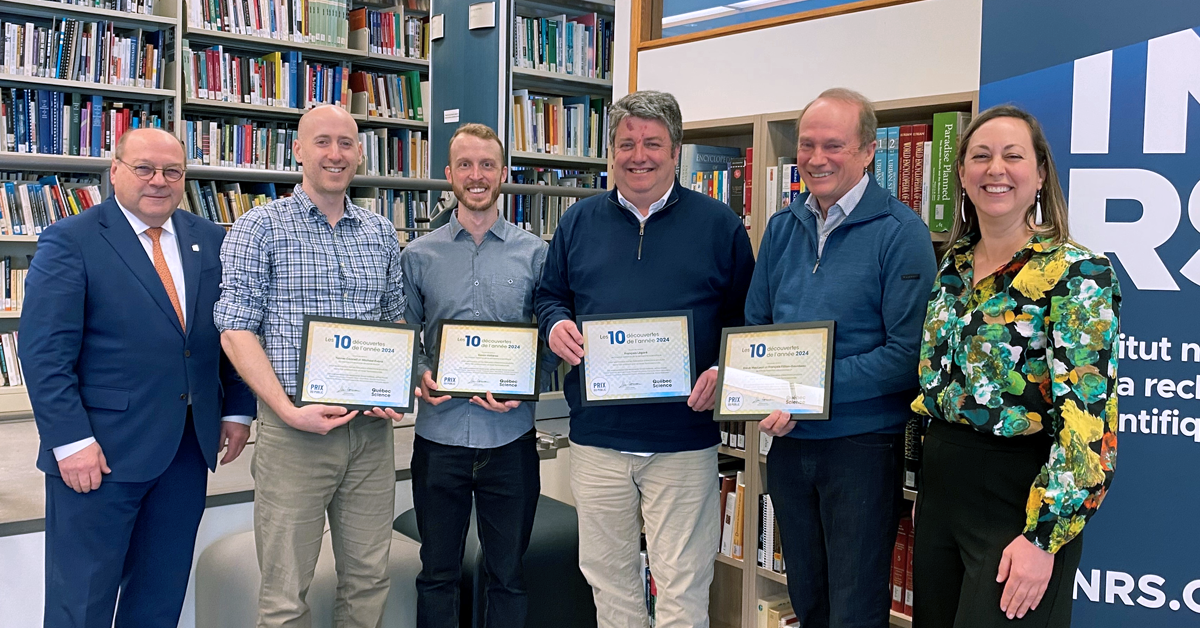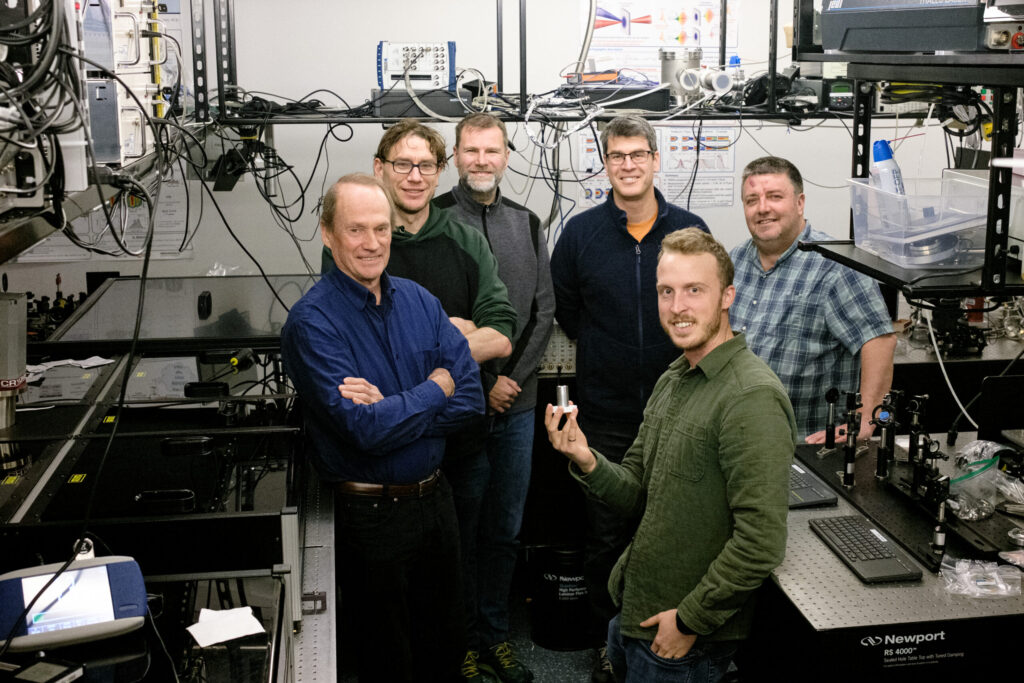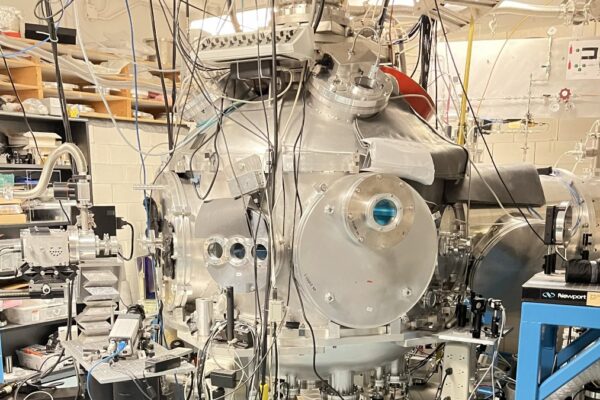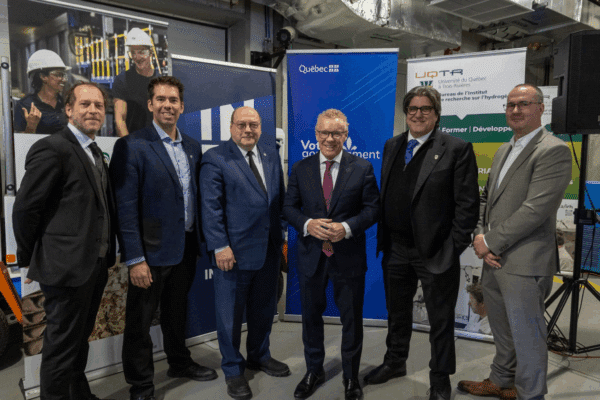- Research
Congratulations to Professor François Légaré’s team!

De gauche à droite : Luc-Alain Giraldeau (directeur général de l’INRS) avec les lauréats Tanner Connell (CUSM), Simon Vallières (INRS), François Légaré (INRS), Steve MacLean (IPL), ainsi qu’Isabelle Delisle (directrice scientifique de l’INRS).
A team from Institut national de la recherche scientifique (INRS) has achieved a breakthrough previously considered impossible: using lasers to generate electron beams in ambient air intense enough to destroy cancerous tumours. This major discovery, which promises to revolutionize the field of radiation therapy, received the people’s choice award in Québec Science magazine’s “10 Discoveries of 2024” competition.
More than 2,000 people voted for their favourite among the 10 most impressive Québec achievements selected by a jury of scientists and journalists. And it was this technological feat that stood out!
“Discoveries that target cancer often win public acclaim.” This one is particularly innovative, because it makes it possible to accelerate electrons without heavy machinery, so to speak. It shows the importance of basic physics research—for medical applications!
Marine Corniou, editor-in-chief of Québec Science
A laser attack on cancer
A new approach to radiation therapy, known as FLASH, usually requires complex vacuum chamber systems to produce the electron beams. Research associate Simon Vallières and Professor François Légaré, together with the team from Advanced Laser Light Source Laboratory, based at INRS in Varennes, have succeeded in producing electron beams in ambient air using an ultrashort laser pulse at energies high enough to have an anti-tumour effect. This discovery, published in late 2023, paves the way for treatments that are easier to implement in hospitals compared to the more cumbersome conventional electron accelerators.
“On behalf of the entire INRS community, I would like to congratulate Professor François Légaré and his team on their promising discovery. In addition to supporting the relevance of their research combining ultrafast laser technology and radiation therapy in oncology, this award also illustrates the public’s appetite in Québec and the rest of Canada for science and its advancements serving society.”
Isabelle Delisle, directrice scientifique de l’INRS
Supported by Infinite Potential Laboratories LP and the Natural Sciences and Engineering Research Council of Canada (NSERC), the project involves collaboration with medical physicists Tanner Connell and Michael Evans from the McGill University Health Centre (MUHC). This breakthrough promises major advances in the study of cancer response to radiation treatments.
“We are delighted and honoured to receive the people’s choice award for 2024 discovery of the year from Québec Science magazine. This is a tremendous reward for the exceptional work carried out in collaboration with our partners at the MUHC and Infinite Potential Laboratories LP using a research infrastructure that is unique in Canada: the Advanced Laser Light Source (ALLS) laboratory, which is based at INRS. Thanks to the public for voting for our discovery!”
Professor François Légaré, research group leader and director of INRS Énergie Matériaux Télécommunications Research Centre

“Receiving this award is a significant milestone in my career as a young researcher at INRS, as it reinforces the societal relevance of our research. I’m confident that our discovery will lead to medical applications in the near future, enabling better radiotherapy treatments for people with cancer.”
Simon Vallières, Research associate and first author of the study.
Also involved in this discovery: Jeffrey Powell, Marianna Lytova, François Fillion-Gourdeau, Sylvain Fourmaux, Stéphane Payeur, Philippe Lassonde (Institut national de la recherche scientifique, Varennes); Steve MacLean (Infinite Potential Laboratories LP); Tanner Connell, Michael Evans (McGill University Health Centre)



